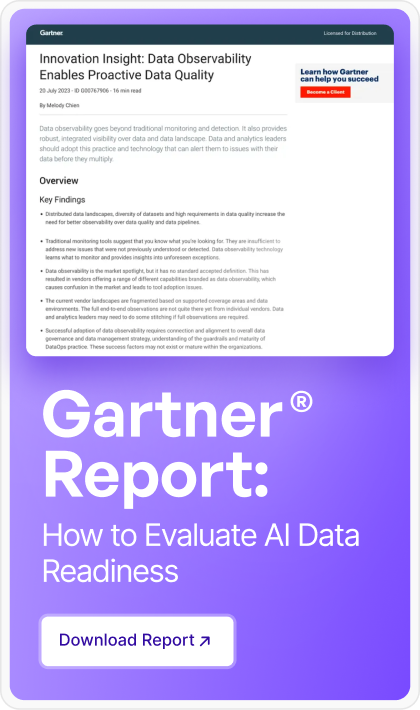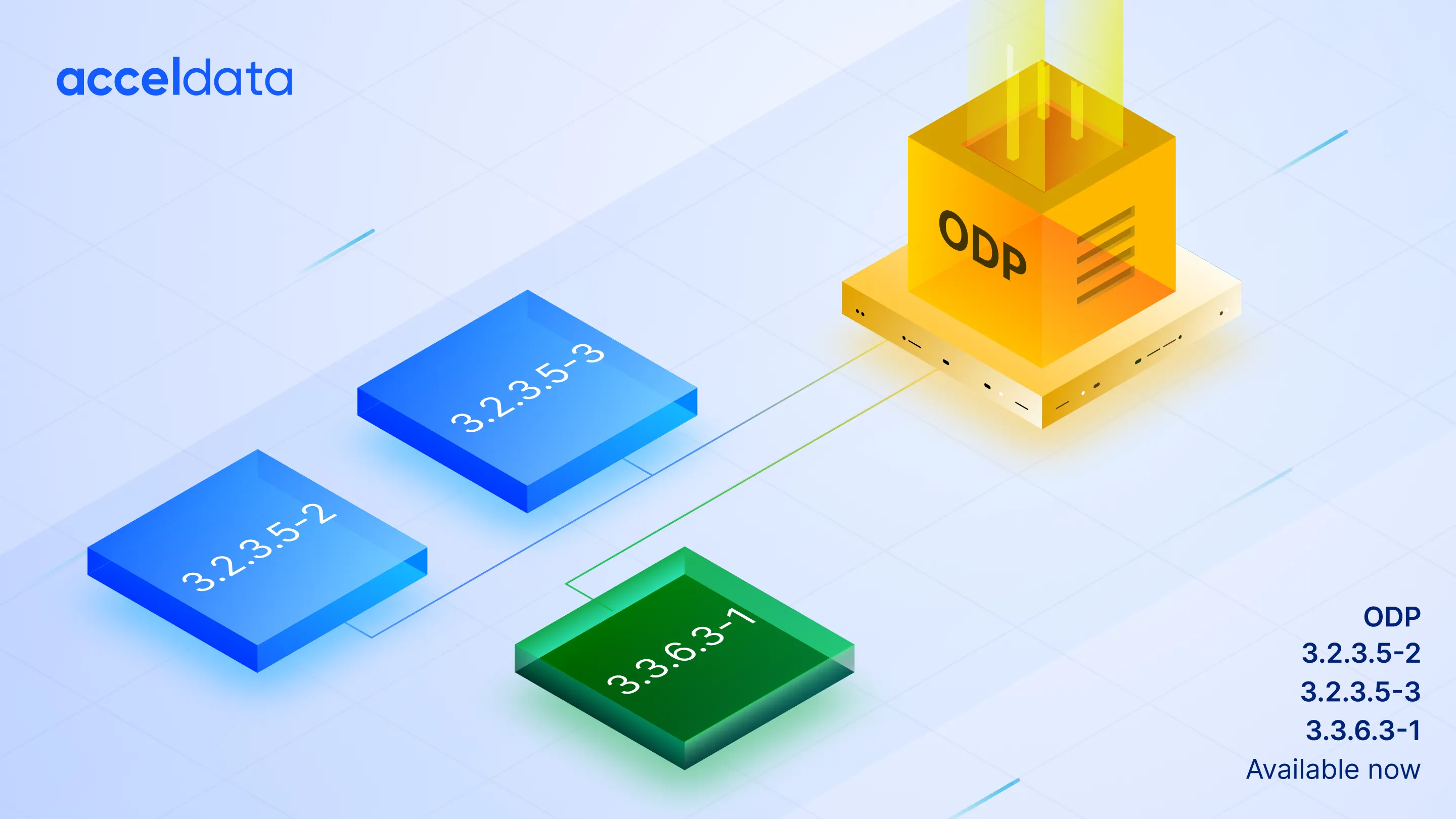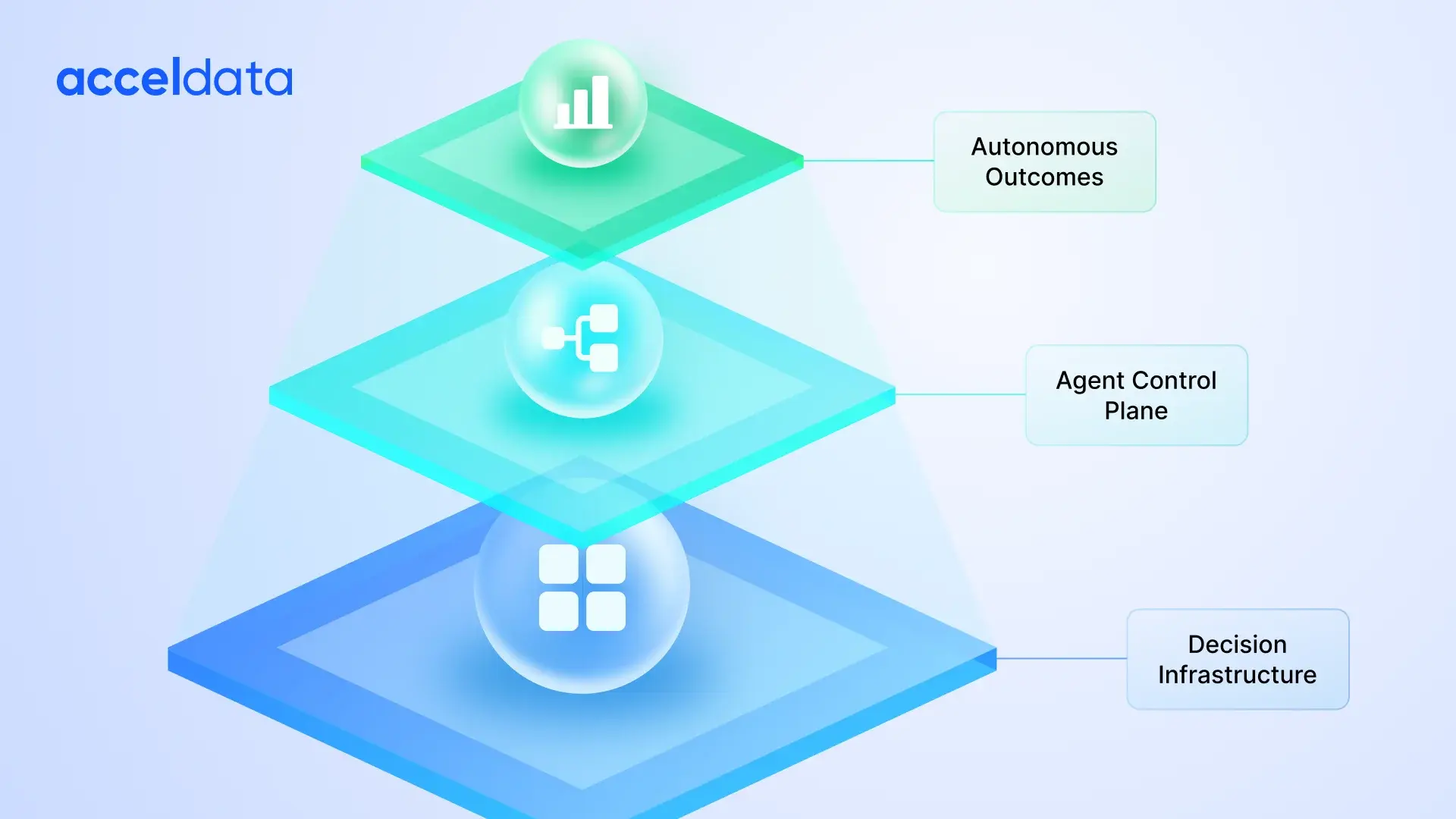Data leaders across almost every industry are trying to figure out the best way to advance their organizations’ data journeys. Digital transformation is clearly important, but it’s not the only factor to consider. Becoming data-driven is another key part of the journey, but getting there isn’t easy.
The question becomes, how can data leaders of large enterprises facilitate the type of change that is necessary to achieve a data-driven culture?
Acceldata’s Senior Vice President Marketing, Girish Bhat, recently interviewed Ravi Prasad, Global Head, Data and AI Strategy and Operations at Novartis, as part of a video series with CDO Magazine. This article recaps a few highlights from their discussion, including Prasad’s “foundational principles'' for building a data-driven team.

Partnering with Business Stakeholders to Build an Enterprise Data Management Program
Data has played an essential role in Novartis’ decision-making for years, but the shift toward an enterprise data management program marked a pivotal moment in its data strategy. “The journey actually started three years ago when we established a more formal, central enterprise data management organization with a hub and spoke model,” said Ravi Prasad, Global Head, Data and AI Strategy and Operations at Novartis. The vision was for functional business areas (the “spokes”) to serve as the data owners, supported by a centralized enterprise data organization (the “hub”) to oversee standardization activities.
It took Prasad's team almost 20 months to build the right charter, operate and fund their model, baseline benchmarks, and manage critical functions (including data governance). During this time, the team proactively engaged stakeholders throughout the organization to listen to their needs, collect feedback, and refine the overall data strategy. “We had an opportunity to develop trust with our business stakeholders early on and actually leverage their best practices into this program,” Prasad said.

Partnering with stakeholders to develop Novartis’ enterprise data management program paved the way to a successful launch. “Once we had acceptance across the various domains, regions, and countries, we formally transformed it into an enterprise data organization,” Prasad said.
Building a Data-Driven Culture: 4 Principles
So, what can data leaders do to foster a data-driven culture that is receptive to an enterprise data management program? Prasad believes there are four foundational principles:
1. Start with business objectives and needs: Gain a firm understanding of what your operational units are trying to achieve. Figure out how they measure success and build data solutions that meet their needs.
2. Co-create data solutions: Even the most innovative data product will provide minimal value if no one uses it. As Prasad points out, “The success of a data transformation lies in adoption.” Increasing adoption depends on gaining input and buy-in from stakeholders.
3. Rely on change management and data literacy teams: Dedicated change management, data literacy, and other internal support groups have important roles to play, too. Data teams should be familiar with the resources that are at their disposal and lean on such teams to advance a data-driven culture.
4. Get buy-in from the top: “Culture and mindset play a very critical role in any kind of transformation,” Prasad said. And, getting C-level buy-in for a data-driven culture is arguably the best starting point.
Start Your Data-Driven Journey
Take the next step toward a data-driven culture by gaining increased visibility into your data with Acceldata Data Observability Cloud.
Take a tour or request a demo to see how data observability can support your enterprise data management program.
Photo by Joshua Sortino on Unsplash






.png)

.png)








.webp)
.webp)


